Building an Innovative Curriculum:
Growth Mindset Plan
The concept of mindset has been widely popularized by Carol Dweck, a Stanford psychologist and the author of Mindset: The New Psychology of Success. According to Dweck, mindset is the way we view ourselves and our abilities. She distinguishes between two types of mindsets: fixed and growth.
A fixed mindset is the belief that our traits, such as intelligence, talent, or personality, are fixed and cannot be changed. A growth mindset is the belief that we can develop and improve our abilities through effort, applying good strategies, feedback, and learning. Having a growth mindset is important for many reasons. It can help us to overcome challenges, see mistakes and failure as opportunities to grow, seek feedback, and pursue our goals. It can also enhance our motivation, creativity, and resilience.
Growth Mindset: A Key Ingredient for My TEPBL Innovation Plan
As an educator who is building an innovation plan that involves Technology-Enhanced Project-Based Learning (TEPBL) for Newcomer Emergent Bilingual (EB) Students, having a growth mindset is critical. As I work on a small team to design and refine engaging and meaningful learning experiences for newcomer EB students that leverages technology and project-based learning, having a growth mindset has helped me embrace the challenge of curriculum writing for teachers of multilingual and diverse students, learn from feedback, and collaborate with key organizational influencers and stakeholders. This is especially true with being open to receiving regular feedback from teachers and students; a crucial part of ensuring that the curriculum meets the needs of all key stakeholders.
Four Steps to Having a Growth Mindset When a Fixed Mindset Creeps In
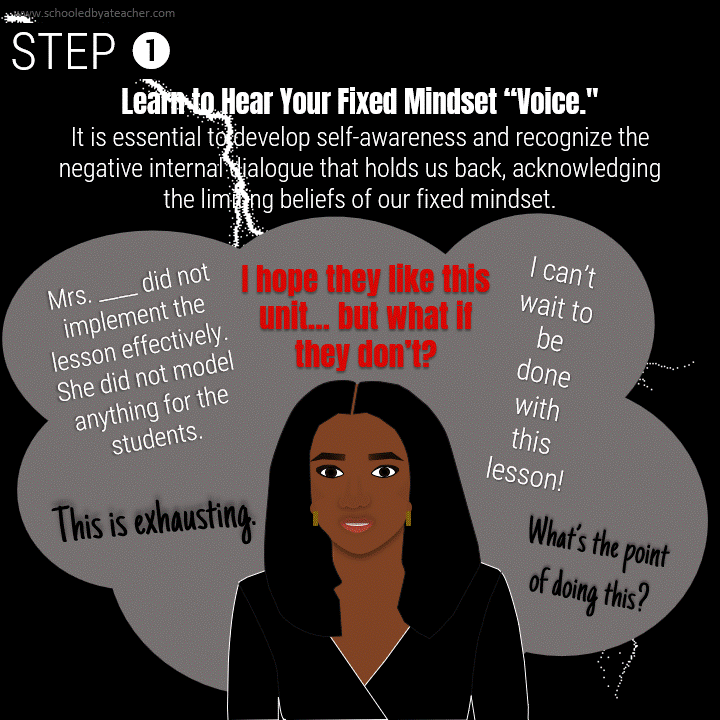
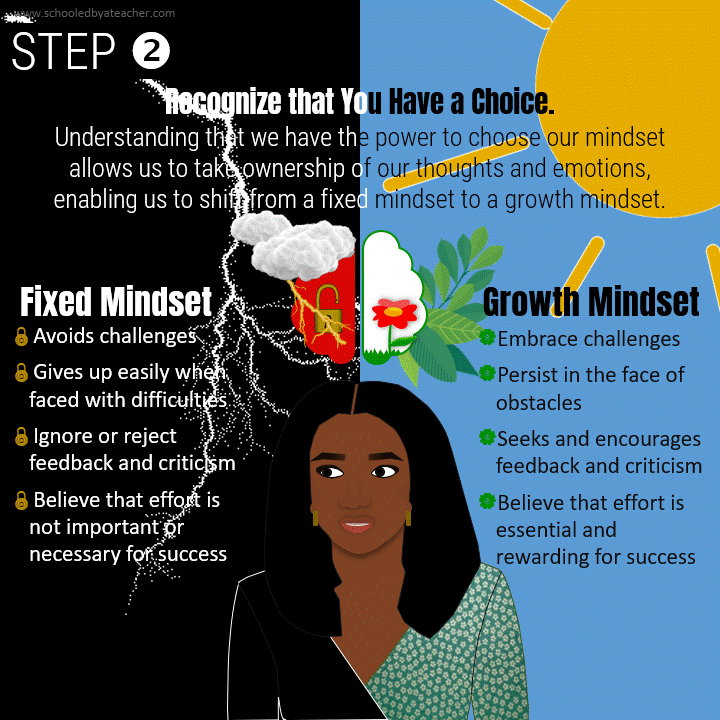
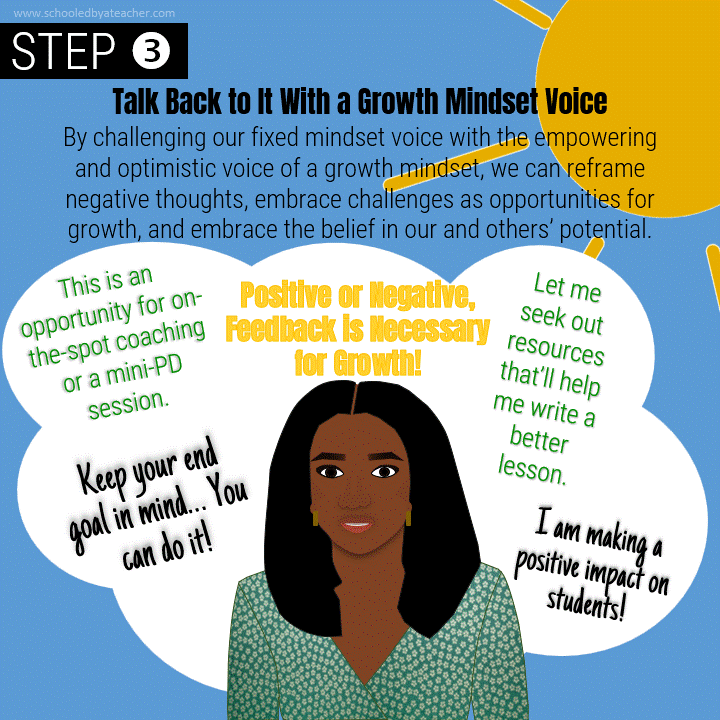
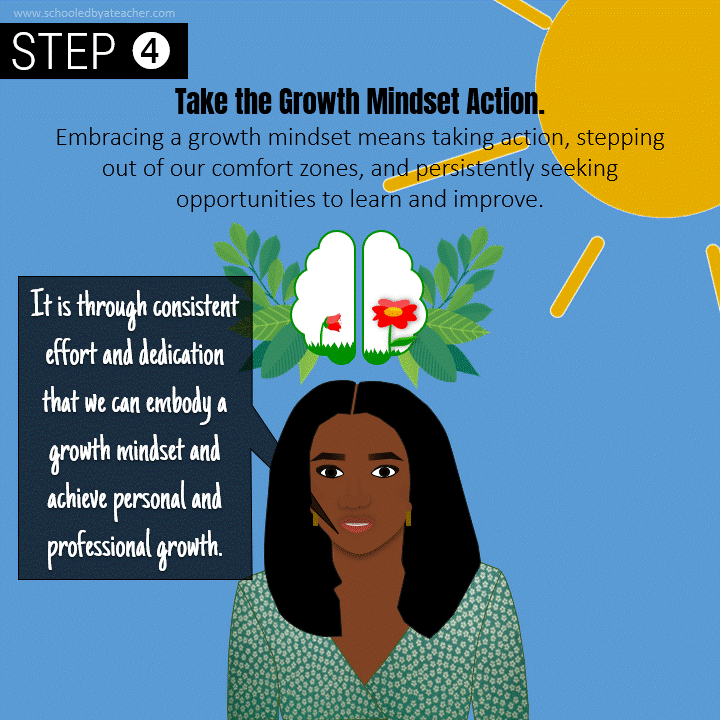
And while things have not always been a walk in the park, I believe that subconsciously referring to the principals of a growth mindset when the going gets tough has helped my team keep our end goal in mind, and celebrate progress and achievements for ourselves, teachers, and students despite any difficulties we face along the way.
Implementing and Promoting Growth Mindset & the Power of “Yet"!
Fostering a Culture of Learning and Innovation
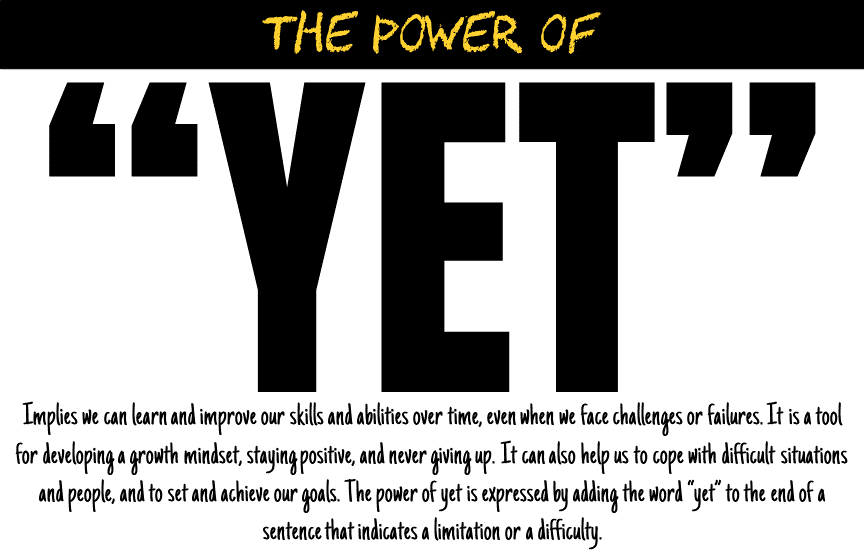
While I’ve defined growth and fixed mindsets in the first section above, the Power of “Yet” is a simple way to shift from a fixed mindset to a growth mindset by adding one word to our statements when we face difficulties or challenges… Yet. For example, instead of saying “I can’t do this”, we’d say “I can’t do this yet”. This implies that we are not giving up, but rather, we are willing to try new strategies, seek feedback, and embrace challenges. This subtle shift in speech can have a positive impact on our mindset and motivation because it leaves room for growth and continued learning.
To implement and promote growth mindset and the power of “yet” in my organization, I will:
Growth Mindset as an Educator
I believe that having a growth mindset is essential for my personal and professional development. A growth mindset is the belief that I can develop and improve my skills through effort and learning. To promote the growth mindset on a regular basis, I will do the following: I will set SMART goals that challenge me to learn new skills or improve existing ones. I will seek feedback from others and use it to improve my performance and outcomes. I will celebrate my progress and achievements, as well as those of others. I will reflect on my learning experiences and identify what worked well and what can be improved. I will ask for help when I need it and offer help when I can.
Growth Mindset as a Grad Student
Growth mindset has also influenced the way I approach my work in the Applied Digital Learning master’s degree program. Although I am pretty open-minded, I’m now more aware of new ideas, approaches, and perspectives that can enrich my learning and understanding (as I work on my innovation plan). I’m more curious and creative in exploring different topics and projects that interest me and spark my passion, and I appreciate the opportunity to collaborate with my peers and instructors, who can support me and challenge me to grow. Lastly, channeling a growth mindset has helped me be more resilient and persistent when faced with challenges.
Resources to Help Develop a Growth Mindset
Here are some resources I will refer to as I continue to cultivate a growth mindset within myself and in my organization.
Closing Thoughts
Having a growth mindset can help us to achieve our goals and overcome our challenges in various aspects of our lives. It can help us to embrace failures, seek feedback, and celebrate progress. It can also help us to be more open, resilient, and creative. However, having a growth mindset is not something that comes naturally 100% of the time. It is a work in progress that requires constant practice and reflection. We need to be aware of our own thoughts and actions, and challenge ourselves to change them when they are fixed or limiting. We also need to surround ourselves with people who support and inspire us to grow. By doing so, we can cultivate a growth mindset that can transform our mindsets, our lives, and the lives of those we seek to impact.